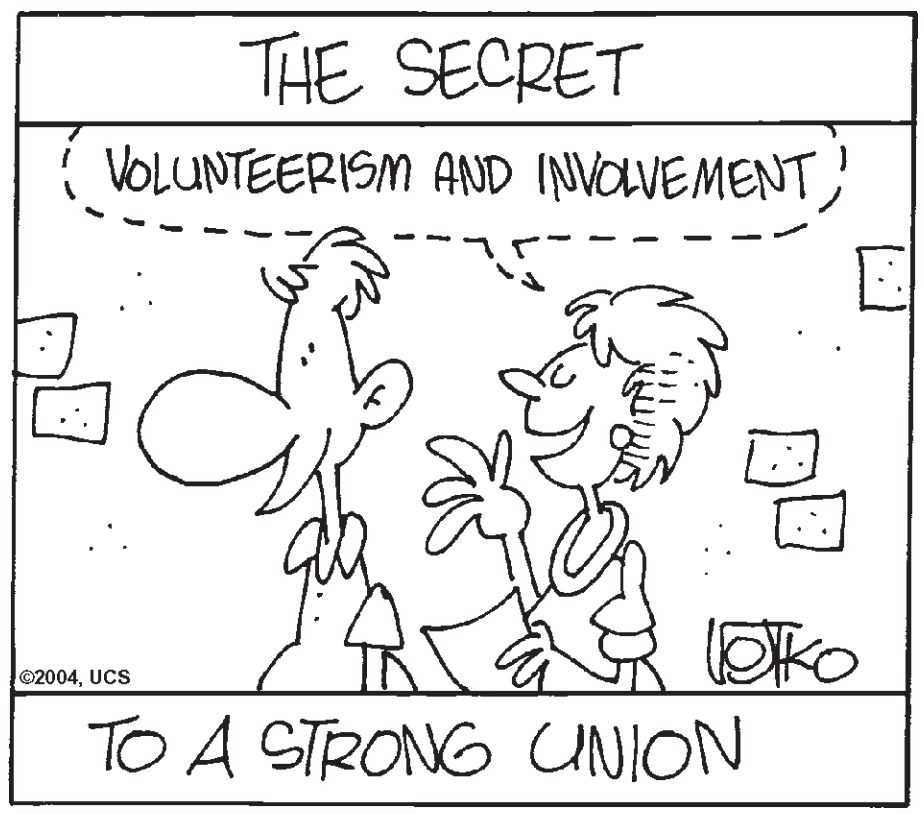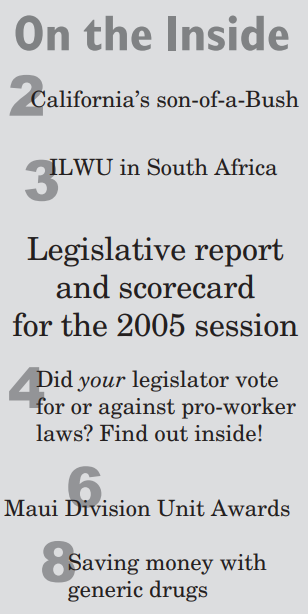In a democratic union like the ILWU, there are members at every workplace who are elected by their fellow workers to lead the union organization at their job site. These elected workers are called “Unit Officers” and the union organization at the job site is called a “Unit” of the ILWU
UUnit officers do their regular job—they punch in, work their shifts, and punch out like everyone else. But after hours and during non-work time, they run meetings, give reports, advise and assist members with problems, make sure management follows the union contract, and carry out a wide variety of duties that is expected of ILWU unit officers.
Unit officers receive no compensation from the union—they serve as volunteers. They take on the responsibility because they care about others and want to help their fellow workers. They believe in the union and understand that the best way for workers to protect their rights and improve their conditions is through union organization.
Unit officers work together with the union’s full-time business agents. Statewide, there are 22 ILWU business agents and 211 units. Each business agent is assigned to service a number of units, based on size and location. The business agent will visit their units regularly and meet with the unit’s officers. The business agent takes on the bulk of the technical and administrative work of the union, but the unit officers have the responsibility of organizing and mobilizing the members of their unit.

Becoming leaders
Most unit officers are in the position because someone has to do the job and no one else has stepped up. They may not be leaders when they start out, but through experience and training they can learn to be very good leaders.

The ILWU Labor Institute was started to provide these rank-and-file unit officers with the training they need. Some of the training is in leadership skills—how to speak in public, how to run a productive meeting, or how to handle conflict. Some of the training provides technical and procedural knowledge—what are the laws affecting workers, how to get information about the company, or how to compute the cost of wages and benefits. Finally, the training is practical—how to negotiate better conditions, how to handle grievances and solve problems with management, or how to get more members involved with the union.
Seventh institute
The ILWU Labor Institute has been held every three years since 1987, making this year’s program number seven. The institute will run five days from June 13-17, 2005, at the ILWU Hall on Atkinson Drive in Honolulu. Participants will be housed at the Ala Moana Hotel which is across the street from the ILWU Hall.
If all leaves of absences are approved, over 120 ILWU rank-and-file leaders are expected to attend the intensive, leadership training program. Over half, 60 people, are from tourism units. Four participants are from longshore units, seven from sugar, and 15 will be coming from pineapple units. The remaining 48 leaders are from a variety of general trades units including macadamia nut, supermarkets, hospitals, trucking, automotive, manufacturing, and others.
History and traditions
Each morning, the Institute will feature a program on the “History and Traditions of the ILWU” which will give the participants a better understanding of the union they belong to and the traditions they need to carry on.
They will learn how the ILWU started as a new, and different kind of union in 1934; why democracy and rank-and-file control of the union were and continue to be important; how the ILWU came to Hawaii and how the union successfully organized workers from many different industries and crafts; and why the ILWU has such a strong commitment to racial equality, social justice, and international solidarity.
For the rest of the day, participants will attend workshops run by some of the best labor educators recruited from across the United States. A total of 12 instructors will be teaching 32 workshops. Participants have the opportunity to attend 6 of the 32 workshops.
For the benefit of the membership
The whole purpose of the training offered by the Labor Institute is to benefit the members of the union. The 120 participants will be expected to take what they learn back to their units and do a better job for the members of their unit. ◆


